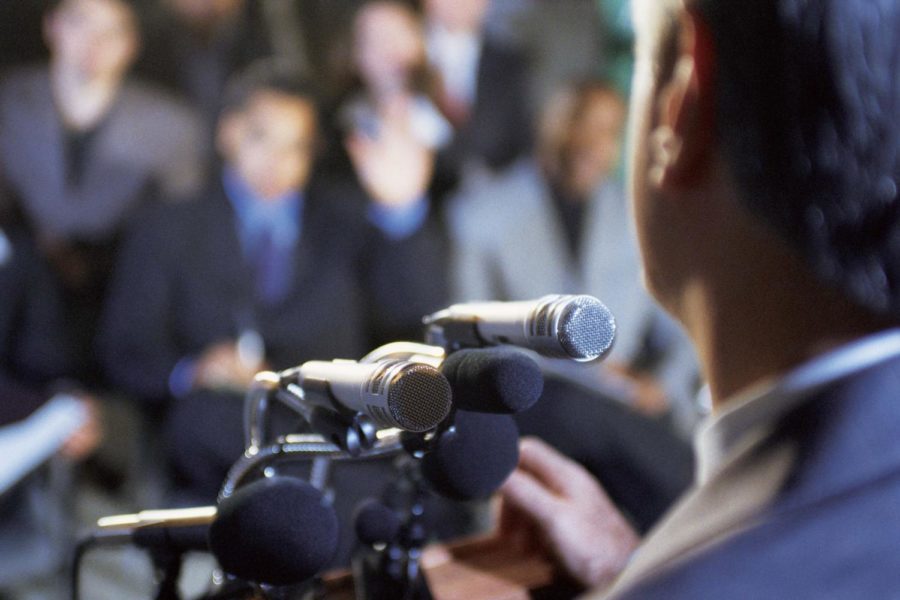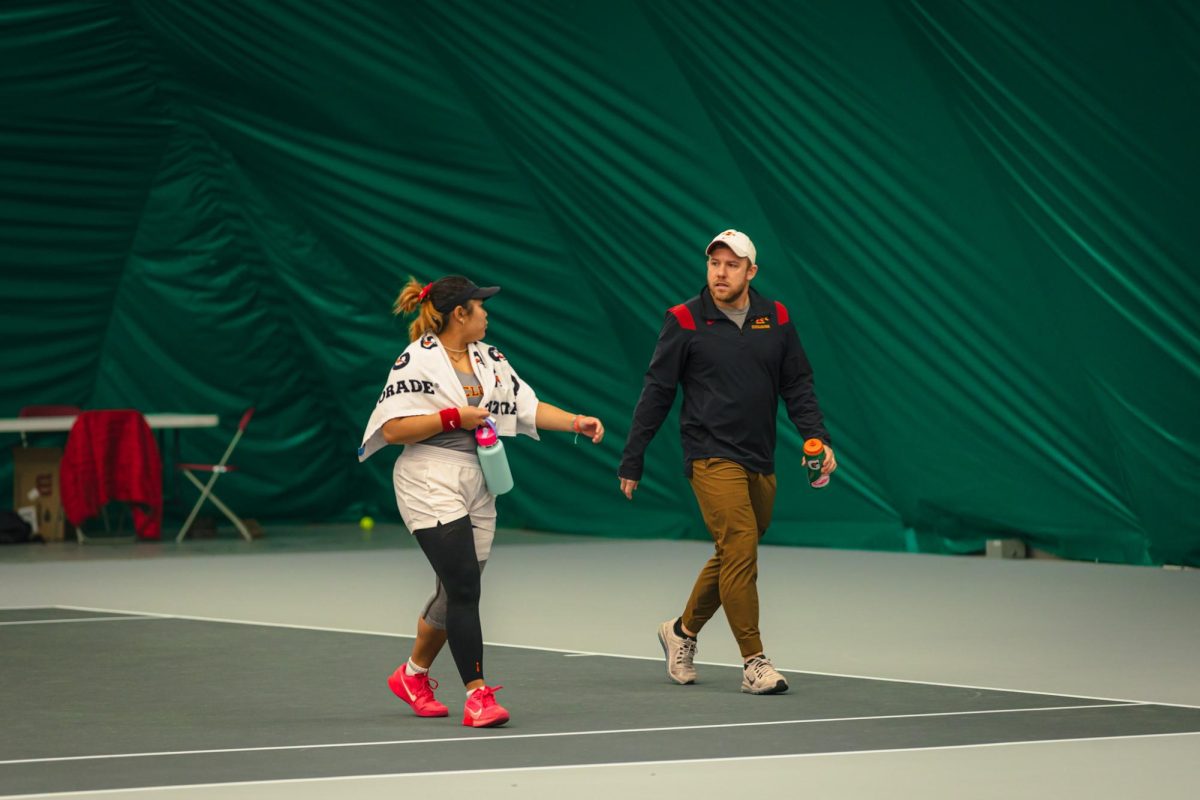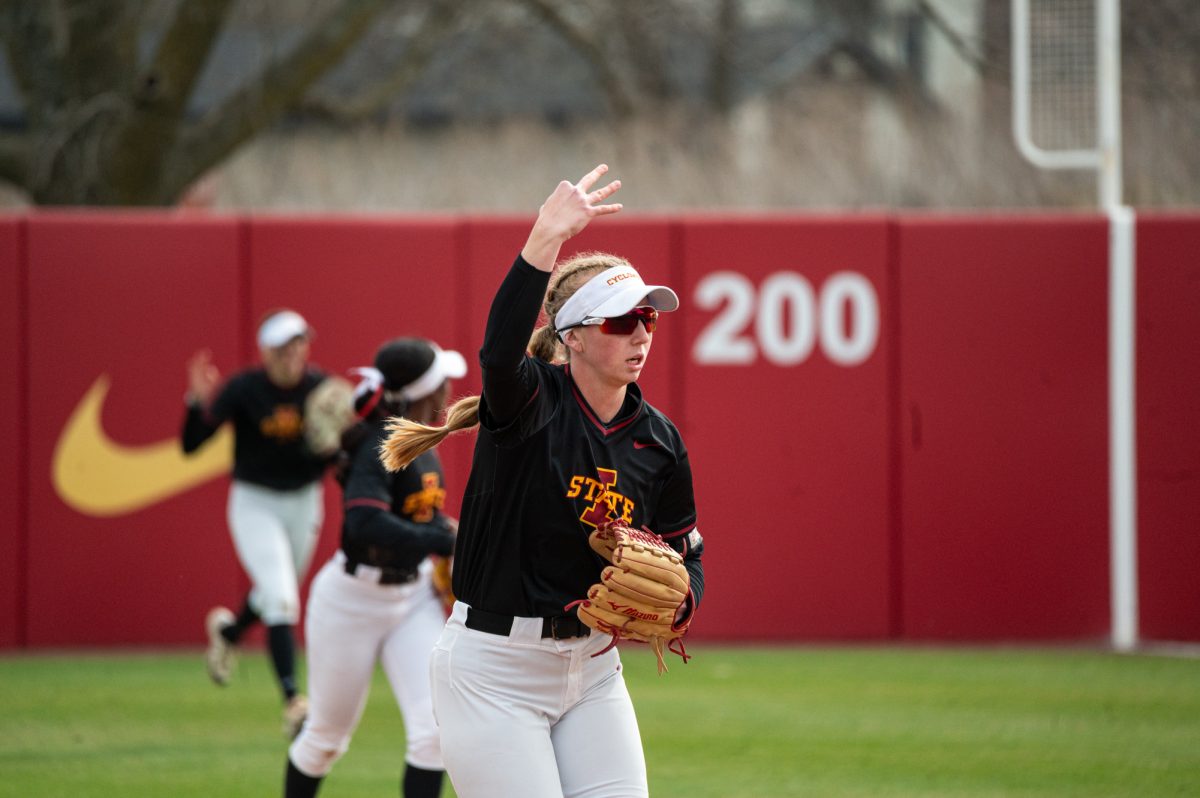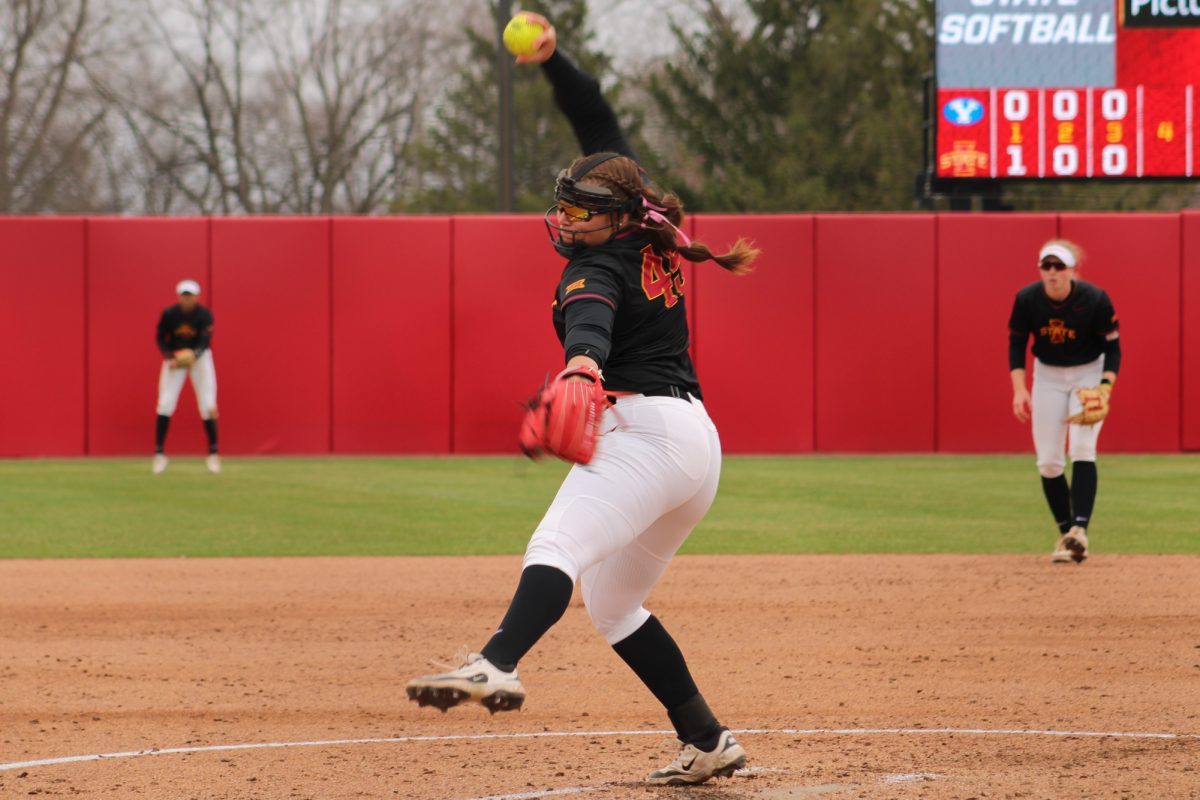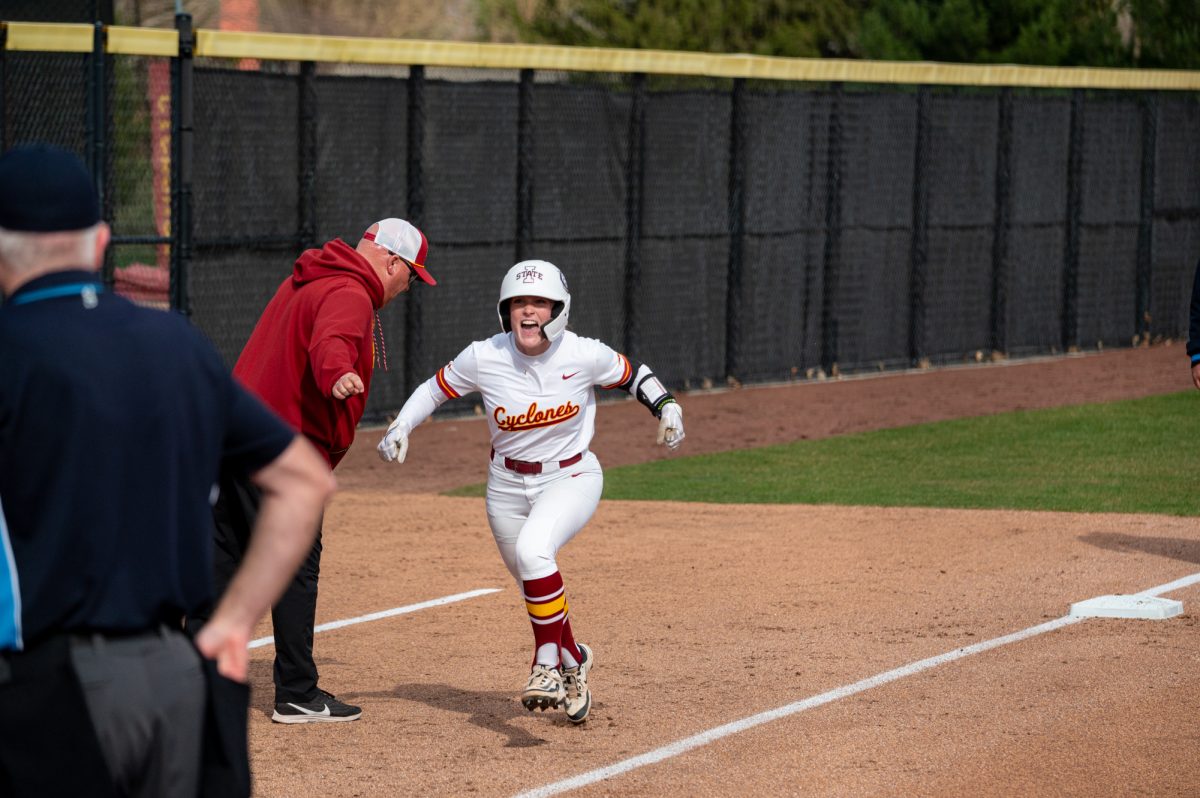Vriezen: Can Political Correctness Be Harmful?
Man giving speech
June 23, 2011
To keep myself occupied this summer, I decided to take a few courses at my local community college and knock a few required classes off my list. As I sat in my Speech lecture, I heard my teacher mention, once again, that as a speaker you must pay attention to the demographics of your audience in order to not offend people. He mainly emphasized sensitivity to culture and religion, two topics that we tend to tiptoe around in America.
Granted, there is a time and place for audience analysis. It will never be a good idea to insert offensive language into a speech that you know people may feel insulted by. While some people may not have a problem offending others (whether they do it intentionally or unintentionally) I tend to think you gain more ground when you don’t attack some aspect of the other person.
Now, in the 21st century, one’s audience is no longer limited to a lecture hall or an auditorium full of people. Videos of the more famous will be uploaded to YouTube and transcripts will be posted online. The audience has become the world.
With the world watching, it seems that speakers, writers and members of the media try to be more and more politically correct. The politically correct people who strive to be inclusive and sensitive build up a wall around those whose cultural or religious practices must apparently be sheltered.
In the past several years, there has been a good deal of discourse surrounding the topic of Shariah law. Regardless of one’s personal belief about the matter, people seemed to struggle with balancing the idea of politically correct religious tolerance with the possible implementation of a very unusual legal code in the Western world.
Other issues such as kosher and halal slaughtering practices have come under scrutiny by animal-rights activists. Criticism of their methods of butchering animals have also been seen as culturally or religiously insensitive.
Add in topics such as male or female circumcision and one can be accused of anti-Semitism, Islamophobia or denying people the freedom to practice their religion.
Does our fixation with being politically correct and deferring to particular cultural or ethnic differences mean there are some topics that one cannot honestly criticize without being deemed a bigot or intolerant? It would seem so.
Those that are more politically incorrect are often called out as offensive, disrespectful, racist, sexist…the list could go on. While some “politically incorrect” individuals may indeed be racist, sexist or generally bigots, often those simply voicing dissent or “incorrect” ideas may be lumped into the same category.
Yes, we are a diverse group of people in America. There are a multitude of ethnic backgrounds, beliefs, political leanings and lifestyles. Because of this, we should generally try to cooperate and get along. But when the knee-jerk reaction of a non-PC statement is to take offense, perhaps we have gone a bit too far.


